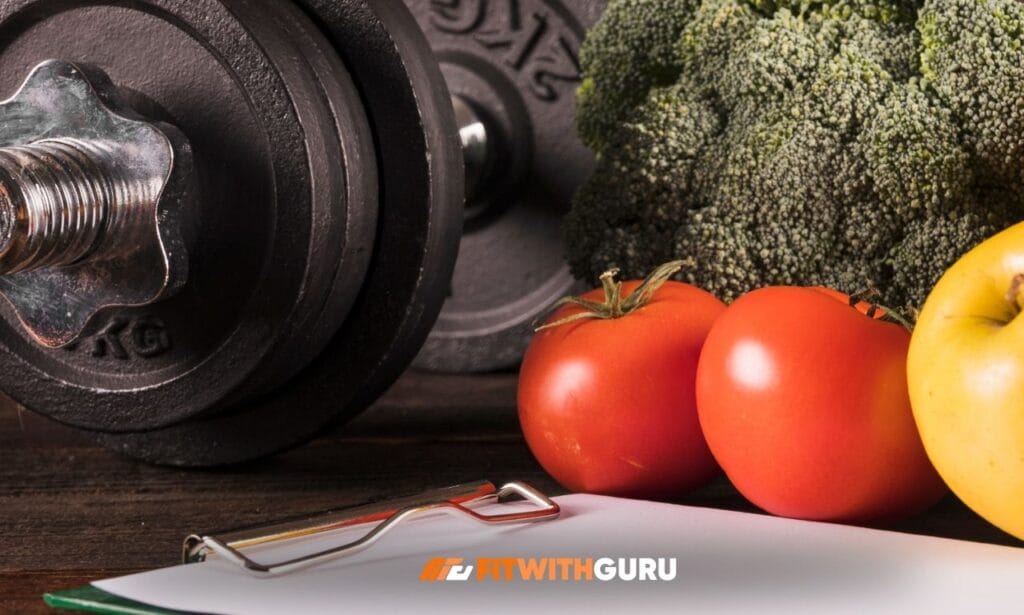When it comes to performing at your best in Calisthenics, your diet is crucial. In contrast to conventional weight training, Calisthenics uses bodyweight exercises that require both stamina and strength. You must provide the proper nutrients to your body to increase muscle mass, improve endurance, and hasten recovery.
You might not make as much progress or recover as quickly if you don’t follow the proper diet. The top six methods for optimizing your diet for Calisthenics will be discussed in this article.
By following these pointers, you can enhance your performance, optimize outcomes, and increase the efficacy of your training sessions. These dietary tips will help you succeed in your calisthenics journey, regardless of whether you’re just starting or want to improve your current regimen.
Why is Nutrition Crucial for Calisthenics?
A healthy diet helps your body perform at its best, enhances recovery, and promotes muscle growth in Calisthenics. Even the most strenuous training sessions may not yield the desired results if the proper nutrients are not consumed.
How does a well-balanced diet impact strength and performance?
- Your body will have the nutrients required for energy production, muscle repair, and optimal function if your diet is well-balanced.
- This entails consuming adequate protein for muscle growth and repair, carbs for long-term energy, and fats for a sustained diet for calisthenics.
- Along with micronutrients like vitamins and minerals, these macronutrients help you perform at your peak and support your muscles during high-intensity training.
What are the essential nutrients needed for calisthenics athletes?
A diet high in protein, complex carbs, healthy fats, and micronutrients is essential for calisthenics athletes to promote muscle growth, energy production, and recuperation. While carbohydrates supply the energy required for strenuous bodyweight exercises, protein is necessary for muscle growth and repair.
Reducing inflammation and promoting sustained energy are two benefits of healthy fats. Furthermore, minerals and vitamins such as potassium, magnesium, and vitamin D support muscle growth and repair.
How does nutrition affect recovery after intense calisthenics workouts?
- Recovery depends heavily on nutrition. Your muscles need to rebuild and repair after a strenuous diet for calisthenics session, and proper nutrition is essential for this process.
- While carbohydrates restore the glycogen stores used for energy during the workout, protein aids in muscle fiber repair after a workout.
- Antioxidants in fruits and vegetables and adequate hydration promote muscle recovery by lowering inflammation and facilitating tissue repair.
What Should Your Macronutrient Breakdown Look Like for Calisthenics?
Your diet should have a well-balanced macronutrient breakdown that promotes strength, endurance, and recovery if you want to improve your calisthenics performance.
How much protein should a calisthenics athlete consume?
Protein is essential for the growth and repair of muscles. diet for calisthenics athletes should try to get between 1.6 and 2.2 grams of protein per kilogram of body weight daily.
After every training session, this quantity guarantees your body has enough building blocks to repair and grow muscle. Lean meats, fish, eggs, legumes, and plant-based protein sources like tofu and tempeh are all excellent protein sources.
What role do carbohydrates play in calisthenics performance?
When you engage in physical activity, particularly intense calisthenics exercises, your body uses carbohydrates as its primary fuel source. The glucose produced by the body’s conversion of carbs is stored in the liver and muscles as glycogen.
When you eat enough carbohydrates, your body will have energy available when you work out, reducing fatigue and enhancing performance. Complex carbs in whole grains, fruits, and vegetables are great for sustaining energy during your workout.

How do fats contribute to performance and recovery?
- Although fats are frequently misinterpreted, they are necessary for sustained energy, particularly during prolonged Calisthenics or endurance-demanding training sessions.
- Omega-3 and omega-6 fatty acids are healthy fats that promote cellular function, lower inflammation, and help produce hormones.
- Because they aid in muscle repair and managing inflammation through vigorous exercise, these fats are crucial for recovery. Nuts, seeds, avocados, and fatty fish like salmon are good sources of good fats.
How to Fuel Up Before Your Calisthenics Workout?
Eating the correct foods before working out guarantees that your body will have enough energy to perform at its peak during a strenuous diet for calisthenics exercises.
What to eat 30 minutes before a workout?
A quick and easy-to-digest snack containing protein and carbohydrates is perfect for refueling before a diet for calisthenics class. This snack could consist of whole-grain toast with avocado, a banana with peanut butter, or a fruit and protein powder smoothie. These choices offer a rapid energy boost and amino acids to help muscles work and perform well during exercise.
How to time your meals for optimal energy?
- Meal timing is essential for maintaining energy levels during your workout. A balanced meal with complex carbohydrates, healthy fats, and protein should ideally be consumed two to three hours before your calisthenics session.
- This allows your body adequate time to break down the food and transform it into energy that can be used. Consider having a lighter snack 30 to 60 minutes before your workout if you’re working out first thing in the morning to get a quick energy boost.
What are the best foods for pre-workout energy?
The most excellent foods for pre-workout energy combine protein and carbs. For instance, a fruit salad with a handful of nuts or muesli and a scoop of protein powder can give your body a consistent energy supply during the workout. To maintain fluid balance, drink water with your pre-workout meal. Staying hydrated is also crucial.
What to Eat After Your Calisthenics Workout for Recovery?
After a strenuous calisthenics session, your body needs to rebuild and recharge, and post-workout nutrition is essential for muscle recovery.
Why is post-workout nutrition important for muscle recovery?
Your muscles require rest and repair following a strenuous workout. Protein is needed for muscle growth and repair, and post-workout nutrition helps restore glycogen stores.
A protein smoothie with fruit or grilled chicken breast served with brown rice, and veggies would be excellent examples. Antioxidants from fruits and vegetables aid in muscle tissue repair and inflammation reduction.

What should your post-workout meal include?
Protein and carbs should be included in your post-workout meal. Carbohydrates restore the glycogen stores exhausted during exercise, while protein aids in muscle fiber repair. A protein smoothie with fruit or grilled chicken breast served with brown rice, and veggies would be excellent examples. Antioxidants from fruits and vegetables aid in muscle tissue repair and inflammation reduction.
How soon should you eat after Calisthenics to maximize recovery?
Eat between 30 and 60 minutes after your diet for calisthenics workout to optimize recovery. The best time to promote muscle recovery and refuel for your next session is during this window after working out when your body is most open to absorbing nutrients. If you wait too long, you might recover more slowly, affecting your performance in future workouts.
How to Stay Hydrated for Optimal Calisthenics Performance?
Maintaining optimal performance during calisthenics exercises and promoting a speedier recovery after they both depend on drinking enough water.
What is the importance of hydration in calisthenics training?
Staying hydrated is essential to performing diet for calisthenics at your best. Even mild dehydration can affect cognitive function, strength, and endurance, making it more challenging to perform high-intensity exercises. Proper hydration guarantees that your muscles function properly and helps control body temperature. During training, staying hydrated promotes general health and keeps you performing at your peak.
How much water should you drink before, during, and after a workout?
Generally speaking, you should consume 16–20 ounces of water two to three hours before working out and then 7–10 ounces every 10–20 minutes while working out.
Try drinking at least 16–24 ounces of water after your workout to compensate for any fluids you may have lost. To stay hydrated, you might need to add electrolytes or increase your water intake if your workout is intense or lasts longer than an hour.
Can you enhance hydration with electrolytes?
Electrolytes are necessary for healthy muscle function and hydration, particularly during extended or vigorous calisthenics sessions. By replacing the sodium, potassium, and magnesium lost through perspiration, electrolyte drinks or supplements can help keep fluid balance and avoid cramping. Pick an electrolyte drink with minimal sugar to maintain balanced and efficient hydration.
Supplements That Can Enhance Your Calisthenics Performance
Supplements can help your calisthenics training by increasing muscle growth, decreasing recovery time, and improving performance.
Are protein powders beneficial for calisthenics athletes?
A quick and efficient way for calisthenics athletes to get the protein they need daily is by using protein powders. Muscle growth and repair require protein, and after vigorous exercise.
When your body needs to rebuild muscle fibers, an easy-to-consume supplement like whey protein can be beneficial. To optimize muscle growth and recuperation, look for premium protein powders that contain essential amino acids.
How can creatine and BCAAs improve performance and recovery?
Creatine can enhance brief bursts of strength and explosive power, which is advantageous for high-intensity diet for calisthenics exercises like push-ups, muscle-ups, and jumps.
However, during extended or vigorous workouts, BCAAs prevent muscle breakdown and lessen muscle soreness. When taken in tandem, these supplements can improve both performance and recuperation, which makes them beneficial supplements for a calisthenics athlete’s routine.

FAQs
What foods are best for building muscle in Calisthenics?
The best foods for building muscle include lean meats, fish, eggs, legumes, and plant-based protein sources. Combining these with whole grains, fruits, and vegetables provides the necessary nutrients for muscle growth.
How do I know if my diet is optimized for calisthenics performance?
Your diet is likely on track if you consistently see strength gains, maintain energy during workouts, and recover well after training. Tracking your progress and listening to your body help ensure your diet supports your goals.
Can I still build strength with a plant-based diet for Calisthenics?
Absolutely! A well-planned plant-based diet can provide all the nutrients needed for strength and performance in diet for calisthenics. Focus on protein-rich plant foods like lentils, quinoa, tofu, tempeh, and various fruits, vegetables, and whole grains.
Conclusion
A balanced diet explicitly designed for calisthenics optimizes muscle growth, performance, and recuperation. Understanding the importance of macronutrients, correctly timing your meals, drinking plenty of water, and using the appropriate supplements will all help you.
It get the most out of your calisthenics workout. You can improve your strength, endurance, and general fitness over time by regularly implementing these techniques.

